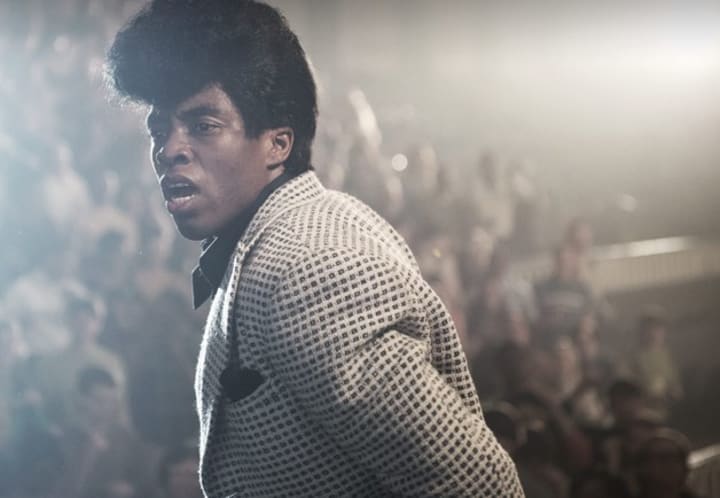A Filmmaker's Guide to Biopics
Three Simple Steps to Creating Your Next Monumental Motion Picture

Biopics, we can all agree, are often modern masterpieces of cinema. They are, more than often, grand films that make appearances over and over again at the Oscars and star some of the greatest actors of a generation. There are also, bad biopics - ones that don't really measure up to the person they are trying to portray (looks at Bohemian Rhapsody in absolute disgust). There's something incredibly aching about these biopics, something that makes you say, "you had all that money and you made a film that my 12-year-old-cousin could've made on his own. Okay." There are however, three steps that you can follow in order to plan your biopic perfectly. There are also three steps you require to establish before you do anything at all and they are the simplest three steps ever. They go like this:
1. Choose the person/people you're depicting
2. Centralise it around what they are known for
3. Study the time period in which they lived
The second section of three steps is the one we're covering today and they are slightly more difficult, yet they are completely understandable. Follow them and I can't promise your biopic will be the best, but completion will get easier and the biopic will definitely be more enticing to watch.
Step 1: Timeline
Timelines are very important, it is of maximum importance though to timeline the life of the person your biopic is about so that you can either cover each section individually or you can cut it down and cover particular sections, OR you can cover one particular section - expanding it so that the focus is on one thing and not an entire existence. Let's see how this works in practice and how timelines have helped biopics achieve maximum reach when they are done differently.
1: Malcolm X (1992)

This film tells the entire life story of Malcolm X, leaving out very little details. It goes from his parenthood and the fact that his father may have been murdered all the way through to when Malcolm Little is in prison, to the Nation of Islam period and through to his assassination and the reactions towards it. It is a prime example of how the timeline regarding an entire life can help decide that maybe, to the audience that would be watching this film, everything is important. In the case of Malcolm X, I think I would be quite upset if the director decided to leave out parts of his life randomly.
Check out how the trailer to the film lets the audience know that yes, it is about his entire life with nothing left to chance:
2: Gandhi (1982)

This film isn't based on the entire life of Gandhi and almost completely misses out his childhood. The reason for this is that not a lot would've happened apart from the normal situations to do with British India - that and the British don't want to make themselves look like idiots with the way they treat people. It begins when Gandhi is already practicing law and runs right the way through to his assassination and funeral. This is very important because it shows us what we require to see of Gandhi - he is doing the work we know to be his and so, we are more inclined to pay attention for three hours than if that were compressed and we get half an hour of childhood scenes. It is a manipulative and yet, very precise move by the director.
Take a look at the trailer and see what it can teach you about the timeline of the film:
3: I'm Not There (2007)

I'm Not There happens to be not only my favourite film of all-time but also one of the strangest biopics you'll ever watch. It isn't even told in chronological order, it's told through snippets and stories and gives us insight into the various lives and masks of Bob Dylan. Be that as it may, it still counts as a biopic since it has used Dylan as a model. It chooses the scenes very carefully and more often than not concentrates on the bigger highlights of Dylan's career, including the gospel era and the famed Judas! years. The point of this isn't only to show the important points of Dylan's career but to also show the audience that Dylan's life and career are so expansive that really, a movie about its entirety is far-fetched and almost impossible. This is what they came up with to show the best parts of his music career and it turned out pretty damn amazing because this film is absolutely brilliant. It is art.
Check out how the trailer shows us what parts of Dylan's expansive career this film bases itself on and which parts are omitted:
Step 2: The Main Point
You need to now decide what the main point of the film will be and why. There must be a reason that a very specific section of the movie is going to play as the entire point of the artwork. It needs to be clear, possibly slower than the rest of the film and it needs to have more atmosphere and this is how it'll be established. But deciding on what that is would be the most difficult part. Get it wrong and it could ruin the entire film, get it right and you're on to a winner.
The main point in a biopic, unlike other films, doesn't have to be in the middle or at the mid-point, it can be at the beginning and it can be at the end. For example: take the very first scene of the film Gandhi (1982), it starts off with his assassination and then goes all the way back to the beginning. That's explaining the main point to us, now the film is going to show us why he was assassinated.
The beginning of the film:
It is very important to see how the director has manipulated the timeline to suit how the storytelling of the film is different to other biopics. Beginning with the end of the film was not really very common back in that day but it was certainly a style that Attenborough loved to try out and something he tests again in his film starring Robert Downey Jr. - Chaplin (1992) in which the entire film is told via flashbacks.
The main point of other films is left until a very precise moment of the film. For example: the point of the film Malcolm X (1992) is to show us his growth when he gets out of prison and how he becomes who he is remembered as. This is done during the build up of the film and not even close to the middle. The next main point will not come until the assassination scene, which is still very upsetting to watch. Check out the assassination scene and notice how it feels slowed down and then, almost instantly, speeds up again:
This is how we distinguish what the main point actually is. It is highlighted by a split second or a moment and then, everything almost instantly returns back to normal. The most likely way of doing this is through speed, building tension requires a slower speed of action and then, after that is establish, you return to normal speed and everything breaks into chaos. It is a brilliant and near-perfect example of some of the best filmmaking you'll ever see and quite possibly one of the greatest films ever made.
Step 3: Character Accuracy
Character accuracy is the one thing that every single person in the audience will pull you up on given the fact that 99% of them probably never even personally knew the subject the film is about, they will all claim to have amazing knowledge on the person. Do you listen to them? Absolutely not. You're a filmmaker, your job is to get good research, not to listen to dumb mass hysterical audiences that mostly consist of teenaged blondes who are too stupid to understand the point of the movie anyway. You need to do your job, don't worry about the audience - they have no idea how to make a movie and you do. If you screw up, it's your fault not theirs.
With your character accuracy you need five various things:
1. Appearance - You have to make sure the actor looks like the person they've portraying. So basically not Rami Malek as Freddie Mercury but more like Cate Blanchett as Bob Dylan.

2. Stance and Persona - You need to make sure the actor can embody the character and make the character stand out in terms of their larger-than-life presence. So basically not Rami Malek as Freddie Mercury but more Johnny Depp as Edward D Wood Jr.

3. Voice - You need to make sure that the actor can sound like the person they are portraying in order to make it hyper-realistic in the experience. So basically not Rami Malek as Freddie Mercury but more Chadwick Boseman as James Brown.

4. Atmosphere - You need to make sure that the actor can establish the same/similar atmosphere that the original person had. If they are too far in history, do some research otherwise, talk to people who knew him/her in order to gage the presence and atmosphere. So basically not Rami Malek as Freddie Mercury but more Kevin Costner as Jim Garrison.

5. Intellect - You need to make sure that the actor can put on the intellect of the character. Maybe get them to read some stuff written by the person in question or watch their interviews/read their transcripts. It will allow the actor to see and match the style of intellect and occupation they are portraying. So basically not Rami Malek as Freddie Mercury but more Daniel Day-Lewis as Abraham Lincoln.

Let's have a run through of some films that you could watch in order to study character accuracy and how to build a character based on a real person:
- Lincoln (2012)
- Judy (2019)
- The Imitation Game (2014)
- The Social Network (2010)
- Get on Up (2014)
- Walk the Line (2005)
- The Wolf of Wall Street (2013)
- Malcolm X (1992)
- Capote (2005)
- Ray (2004)
- La Vie En Rose (2007)
- My Left Foot (1989)
- Frida (2002)
- Gandhi (1982)
- The Aviator (2004)
- Chaplin (1992)
- I'm Not There (2007)
- Lady Sings the Blues (1972)
Conclusion:
I hope you've learnt something about how to make a good and effective biopic. Remember a biopic is not a documentary, it is meant primarily for entertainment and so, you should so a style of accuracy that accompanies the times in which your figure lived. I would say to choose someone 19th Century and after so that the audience identify with them more, but it is really up to you. I'm not going to tell you which one to watch but I'm Not There (2007) is definitely my favourite film of all time.
About the Creator
Annie Kapur
200K+ Reads on Vocal.
English Lecturer
🎓Literature & Writing (B.A)
🎓Film & Writing (M.A)
🎓Secondary English Education (PgDipEd) (QTS)
📍Birmingham, UK






Comments
There are no comments for this story
Be the first to respond and start the conversation.